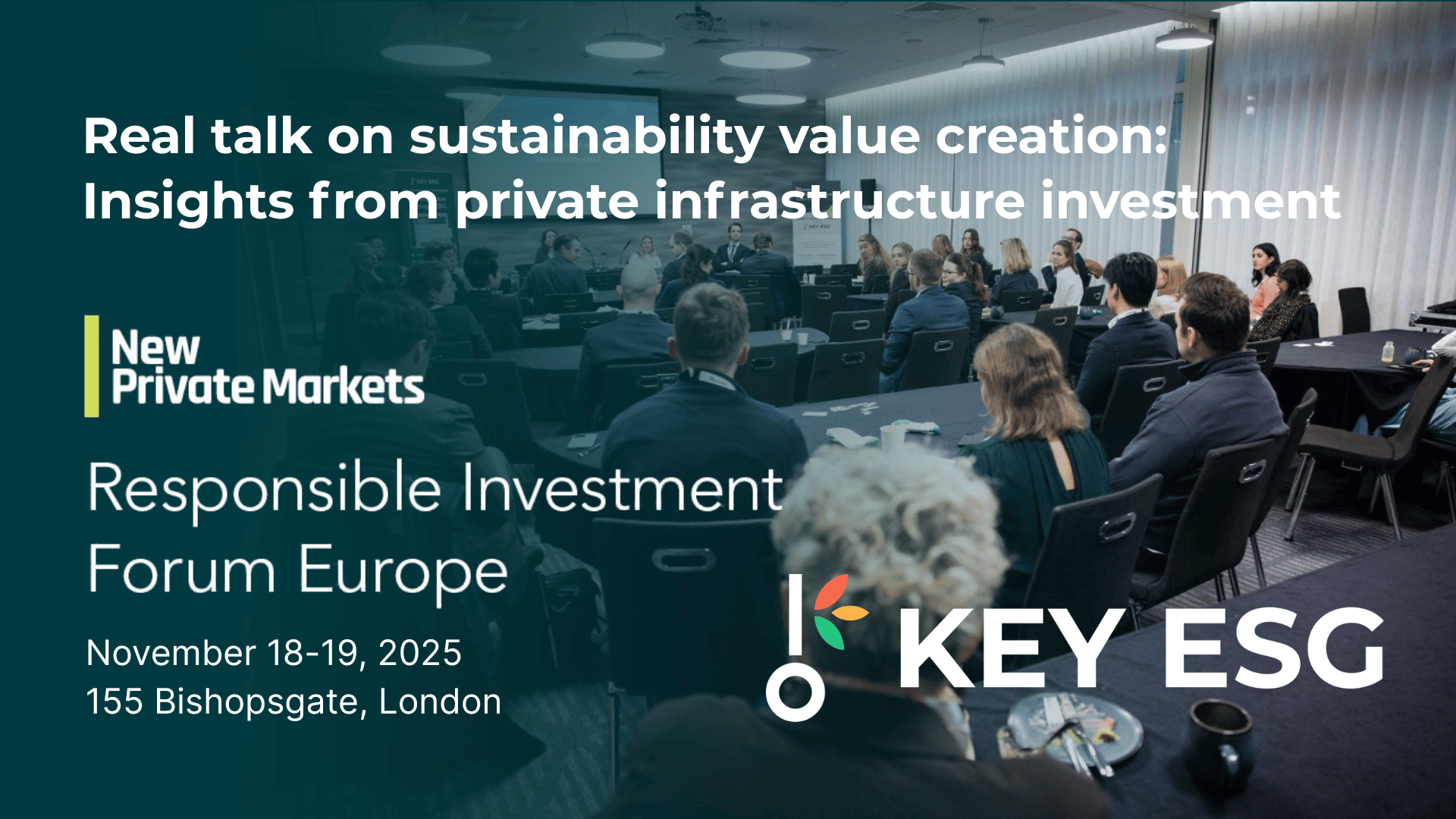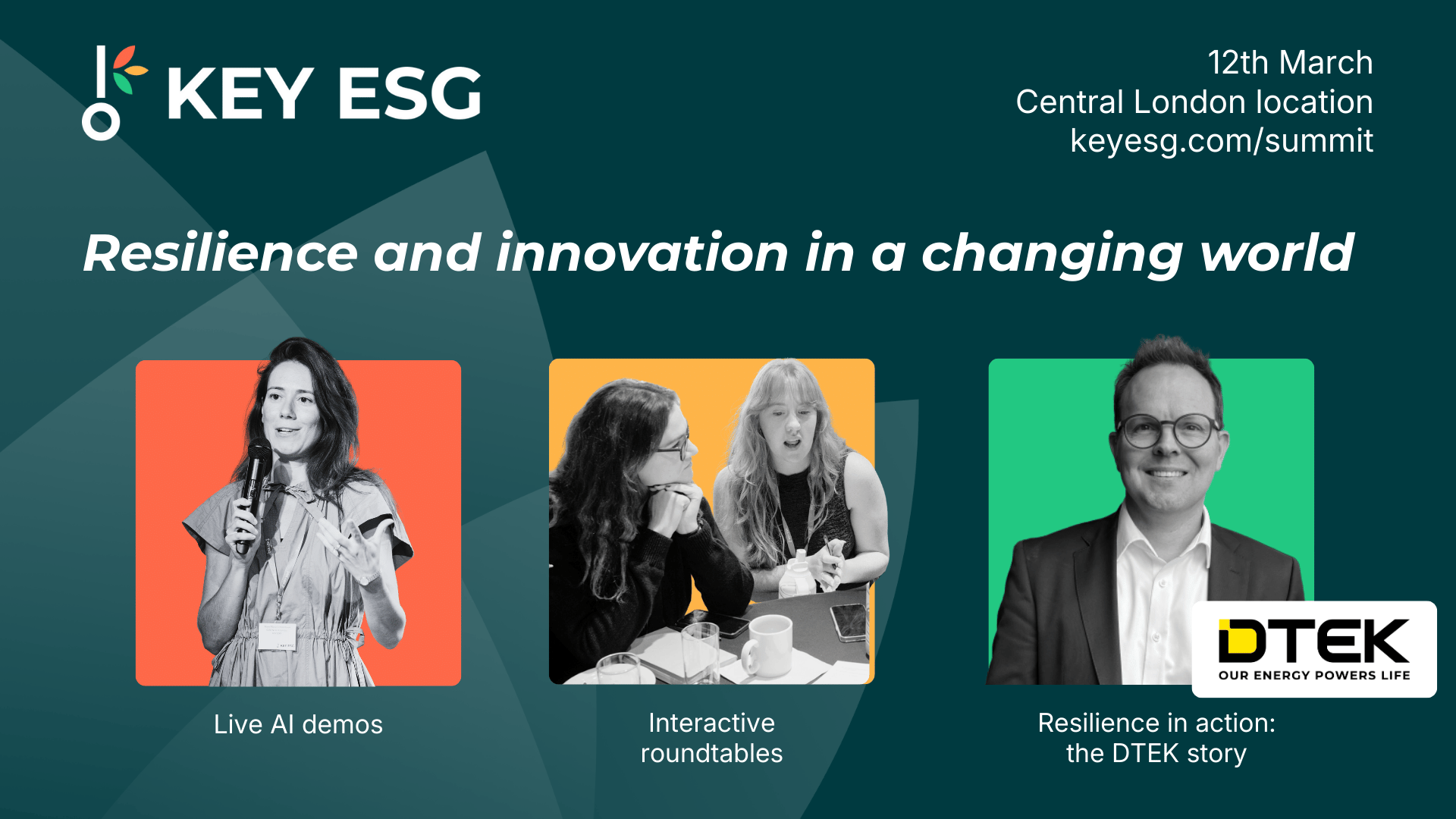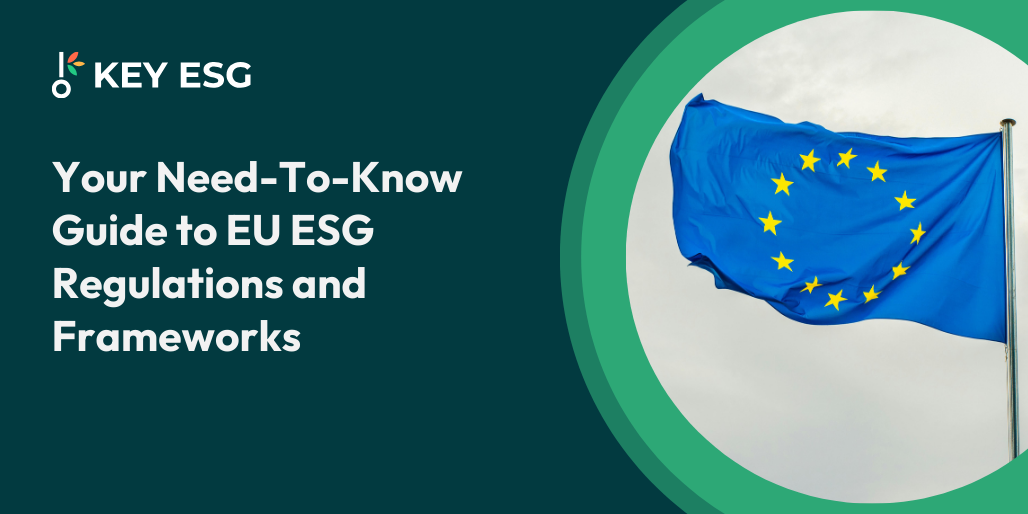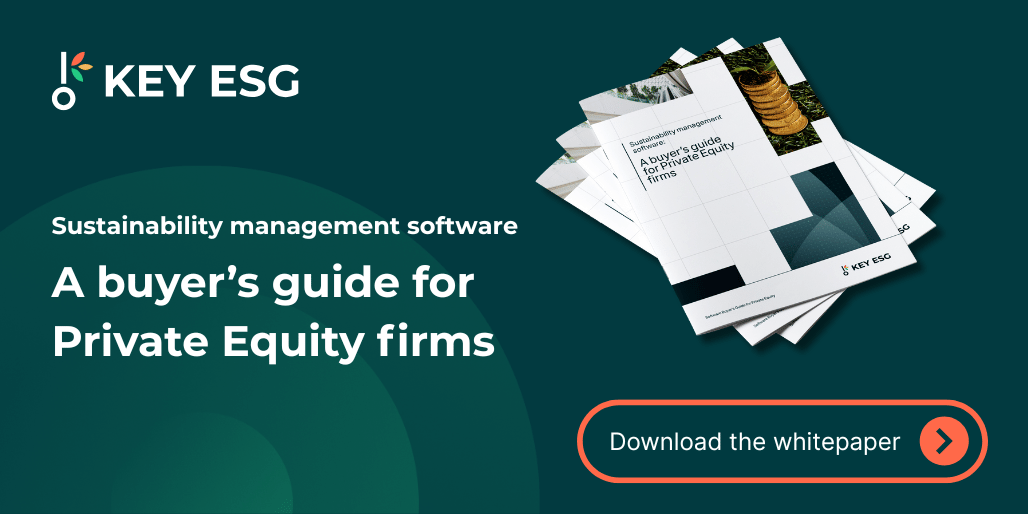This week’s breakfast workshop at the Responsible Investment Forum Europe brought together the founders of KEY ESG and leading infrastructure investor Antin Infrastructure Partners to tackle a question that's become increasingly urgent: is sustainability actually creating value, or has it become just another compliance burden?
Beyond the backlash: Sustainability's evolving role
Despite political headwinds in some markets, the conversation revealed a striking reality: sustainability factors have become more financially material than ever. Rising operating costs, climate-related disruptions, and heightened scrutiny from lenders mean that what were once considered 'soft' issues now directly impact bottom lines.
The shift is tangible. Energy costs, safety incidents, and access to favourable financing terms aren't abstract concerns; they're immediate drivers of competitive advantage. Companies winning major contracts today are often doing so precisely because they can help clients meet ambitious sustainability targets.
The timing paradox
One of the workshop's most candid moments addressed a common tension: many sustainability initiatives make clear financial sense, but benefits don't always materialise within the next quarter. The solution? Breaking work into practical phases, starting with quick wins like energy efficiency and safety improvements, then layering in longer-term decarbonisation measures aligned with existing capital expenditure cycles.
The key insight: if something doesn't make business sense at a given moment, don't force it. Pragmatism beats ideology every time.
Data: Quality over quantity
A significant portion of the discussion centred on sustainability data, specifically, the difference between useful intelligence and meaningless noise. The filtering question participants recommended: 'Will this help us make a decision?'
Common pitfalls emerged clearly:
• Collecting data purely for external reporting without internal utility
• Inconsistent methodologies across sectors and geographies
• Fragmented data sitting in manual spreadsheets prone to errors
The workshop highlighted practical approaches to data integrity: requiring raw data rather than pre-calculated KPIs, implementing standardised protocols across portfolios, and elevating sustainability data accountability to the level of financial reporting.
This is precisely where KEY ESG's platform delivers operational value. By providing structured workflows, built-in validation checks, and centralised data capture, the software eliminates the fragmentation that plagues manual spreadsheet processes. Portfolio companies follow consistent protocols automatically, reducing errors whilst freeing sustainability teams to focus on insight rather than data wrangling. The result: reliable, standardised data that enables meaningful benchmarking across assets and supports targeted value creation initiatives.
Small steps, big impact
Perhaps the most pragmatic advice came when discussing what happens when sustainability initiatives don't go as planned. The lesson: baby steps work best. Instead of requesting full carbon footprints from newly acquired businesses, start with basic energy and fuel consumption tracking. Rather than launching comprehensive overhauls, begin by standardising incident reporting.
These modest steps build trust and momentum, unlocking more ambitious work later. The foundation for progress isn't perfect plans or aggressive targets; it's positive relationships with management teams and demonstrating that sustainability work is supportive, not judgemental.
KEY ESG's phased approach enables exactly this kind of pragmatic rollout. Funds can start portfolio companies on core metrics that matter most for value and risk, then expand data collection as capabilities mature, all within a single platform that scales with ambition without overwhelming resources.
The leadership gap
The workshop drew a stark contrast between sustainability leaders and laggards in private markets. Leaders integrate sustainability early in deal processes, focus on material topics that genuinely affect value and risk, and maintain or even reinforce their teams during challenging conditions. Laggards still treat sustainability primarily as a reporting exercise, and some are shrinking teams when pressure rises.
The real difference? Leaders use sustainability strategically to drive value. Laggards treat it as a tick-box exercise that can be cut when conditions get difficult.
Looking ahead
As LP expectations continue to rise, particularly in Europe, the conversation is shifting from 'send us the data' to 'show us your programme, plan, and outcomes'. This evolution makes engagement more substantive, but also raises the bar for demonstrating real impact beyond compliance.
The workshop's overarching message was refreshingly practical: sustainability creates value when it's grounded in business reality, supported by reliable data, and pursued through relationships built on trust rather than pressure. In today's market environment, that's not idealism; it's pragmatism that pays.
Want to learn more about sustainability value creation in infrastructure? Download our whitepaper: From Compliance to Competitive Advantage: How Infrastructure Funds Create Value Through Sustainability
Ready to move from spreadsheet chaos to strategic insight? KEY ESG's sustainability management software helps private equity funds and their portfolio companies collect reliable data, benchmark performance, and demonstrate real value creation, not just compliance. Book a demo to see how leading infrastructure and private equity investors are turning sustainability into a competitive advantage.
This article reflects themes and insights discussed under the Chatham House Rule at a recent industry workshop. Individual comments are not attributed to specific participants or organisations.
This week’s breakfast workshop at the Responsible Investment Forum Europe brought together the founders of KEY ESG and leading infrastructure investor Antin Infrastructure Partners to tackle a question that's become increasingly urgent: is sustainability actually creating value, or has it become just another compliance burden?
Beyond the backlash: Sustainability's evolving role
Despite political headwinds in some markets, the conversation revealed a striking reality: sustainability factors have become more financially material than ever. Rising operating costs, climate-related disruptions, and heightened scrutiny from lenders mean that what were once considered 'soft' issues now directly impact bottom lines.
The shift is tangible. Energy costs, safety incidents, and access to favourable financing terms aren't abstract concerns; they're immediate drivers of competitive advantage. Companies winning major contracts today are often doing so precisely because they can help clients meet ambitious sustainability targets.
The timing paradox
One of the workshop's most candid moments addressed a common tension: many sustainability initiatives make clear financial sense, but benefits don't always materialise within the next quarter. The solution? Breaking work into practical phases, starting with quick wins like energy efficiency and safety improvements, then layering in longer-term decarbonisation measures aligned with existing capital expenditure cycles.
The key insight: if something doesn't make business sense at a given moment, don't force it. Pragmatism beats ideology every time.
Data: Quality over quantity
A significant portion of the discussion centred on sustainability data, specifically, the difference between useful intelligence and meaningless noise. The filtering question participants recommended: 'Will this help us make a decision?'
Common pitfalls emerged clearly:
• Collecting data purely for external reporting without internal utility
• Inconsistent methodologies across sectors and geographies
• Fragmented data sitting in manual spreadsheets prone to errors
The workshop highlighted practical approaches to data integrity: requiring raw data rather than pre-calculated KPIs, implementing standardised protocols across portfolios, and elevating sustainability data accountability to the level of financial reporting.
This is precisely where KEY ESG's platform delivers operational value. By providing structured workflows, built-in validation checks, and centralised data capture, the software eliminates the fragmentation that plagues manual spreadsheet processes. Portfolio companies follow consistent protocols automatically, reducing errors whilst freeing sustainability teams to focus on insight rather than data wrangling. The result: reliable, standardised data that enables meaningful benchmarking across assets and supports targeted value creation initiatives.
Small steps, big impact
Perhaps the most pragmatic advice came when discussing what happens when sustainability initiatives don't go as planned. The lesson: baby steps work best. Instead of requesting full carbon footprints from newly acquired businesses, start with basic energy and fuel consumption tracking. Rather than launching comprehensive overhauls, begin by standardising incident reporting.
These modest steps build trust and momentum, unlocking more ambitious work later. The foundation for progress isn't perfect plans or aggressive targets; it's positive relationships with management teams and demonstrating that sustainability work is supportive, not judgemental.
KEY ESG's phased approach enables exactly this kind of pragmatic rollout. Funds can start portfolio companies on core metrics that matter most for value and risk, then expand data collection as capabilities mature, all within a single platform that scales with ambition without overwhelming resources.
The leadership gap
The workshop drew a stark contrast between sustainability leaders and laggards in private markets. Leaders integrate sustainability early in deal processes, focus on material topics that genuinely affect value and risk, and maintain or even reinforce their teams during challenging conditions. Laggards still treat sustainability primarily as a reporting exercise, and some are shrinking teams when pressure rises.
The real difference? Leaders use sustainability strategically to drive value. Laggards treat it as a tick-box exercise that can be cut when conditions get difficult.
Looking ahead
As LP expectations continue to rise, particularly in Europe, the conversation is shifting from 'send us the data' to 'show us your programme, plan, and outcomes'. This evolution makes engagement more substantive, but also raises the bar for demonstrating real impact beyond compliance.
The workshop's overarching message was refreshingly practical: sustainability creates value when it's grounded in business reality, supported by reliable data, and pursued through relationships built on trust rather than pressure. In today's market environment, that's not idealism; it's pragmatism that pays.
Want to learn more about sustainability value creation in infrastructure? Download our whitepaper: From Compliance to Competitive Advantage: How Infrastructure Funds Create Value Through Sustainability
Ready to move from spreadsheet chaos to strategic insight? KEY ESG's sustainability management software helps private equity funds and their portfolio companies collect reliable data, benchmark performance, and demonstrate real value creation, not just compliance. Book a demo to see how leading infrastructure and private equity investors are turning sustainability into a competitive advantage.
This article reflects themes and insights discussed under the Chatham House Rule at a recent industry workshop. Individual comments are not attributed to specific participants or organisations.







